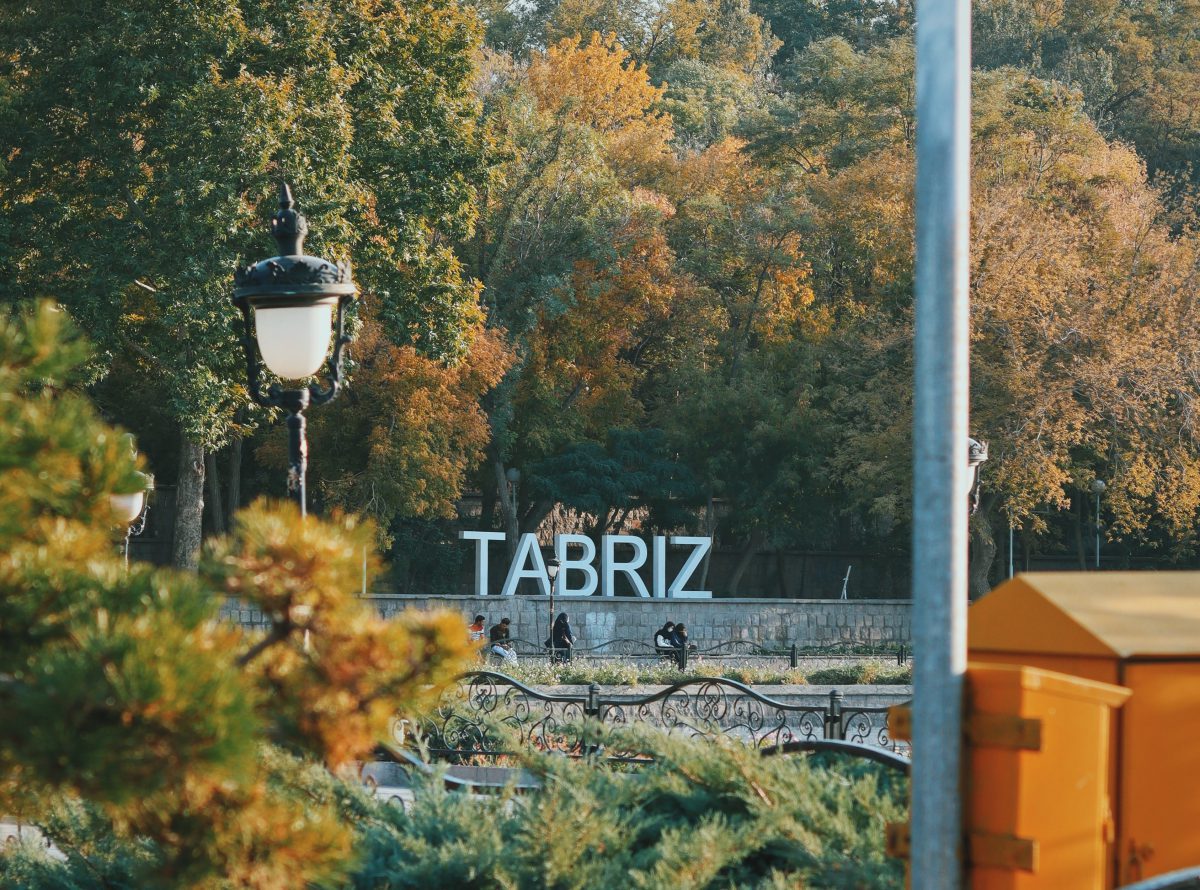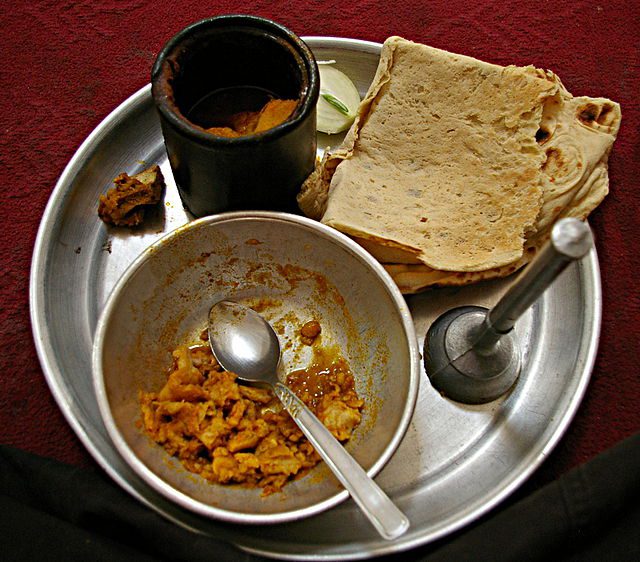Table of Contents
Welcome to Tabriz, a city steeped in history, culture, and culinary delights. Nestled in the heart of Iran, Tabriz boasts a millennia-old legacy that has witnessed the rise and fall of empires, making it one of the country’s most historically significant and captivating destinations. From its pivotal role in the Constitutional Revolution to its enchanting UNESCO World Heritage sites, Tabriz offers a journey through time and tradition that’s bound to leave an indelible mark on any traveler. Join us in this Tabriz travel guide to walk through the city and the treasures this ancient place has to offer.
A Glimpse into Tabriz’s History
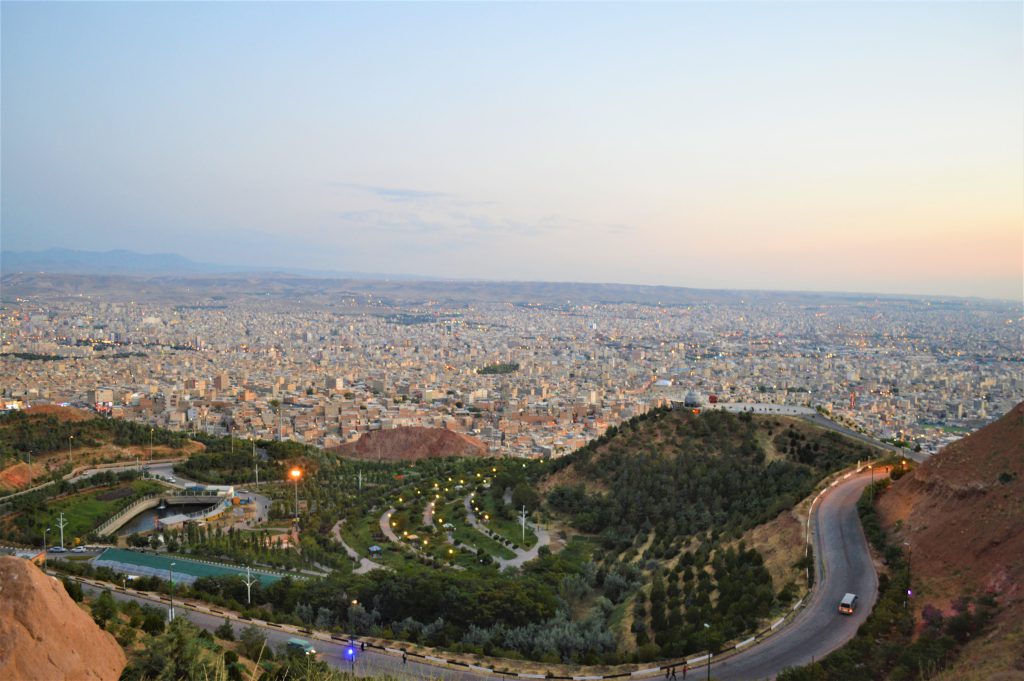
Tabriz’s storied history stretches back millennia, making it one of Iran’s oldest and most historically significant cities. It has been a witness to the rise and fall of empires, including the rule of Alexander the Great, the Mongol invasions, and the Safavid dynasty’s glorious reign. However, this city’s historical significance isn’t limited to its distant past. In the early 20th century, it played a pivotal role in Iran’s Constitutional Revolution, further cementing its status as a center of political and social change.
Tabriz Azerbaijan: Area, Population, and Climate

Spanning approximately 220 square kilometers, Tabriz ranks among Iran’s largest cities. Recent statistics from the Tabriz Municipality reveal a population exceeding 1.5 million residents, creating a bustling, dynamic urban center. Perched at an elevation of about 1,350 meters (4,430 feet), Tabriz experiences a semi-arid climate. Summers can be scorching, with temperatures often soaring above 30 degrees Celsius (86 degrees Fahrenheit), while winters are moderately cold, marked by temperatures dipping below freezing.
A Journey through Culture and Heritage
One of the most alluring facets of this city is its rich cultural tapestry, which is on full display as you explore the city’s captivating landmarks. A visit to the UNESCO World Heritage Site, the Tabriz Historic Bazaar Complex, is an absolute must. Dating back to the 13th century, this labyrinthine marketplace beckons with its winding alleys, vibrant stalls, and magnificent Persian architecture.
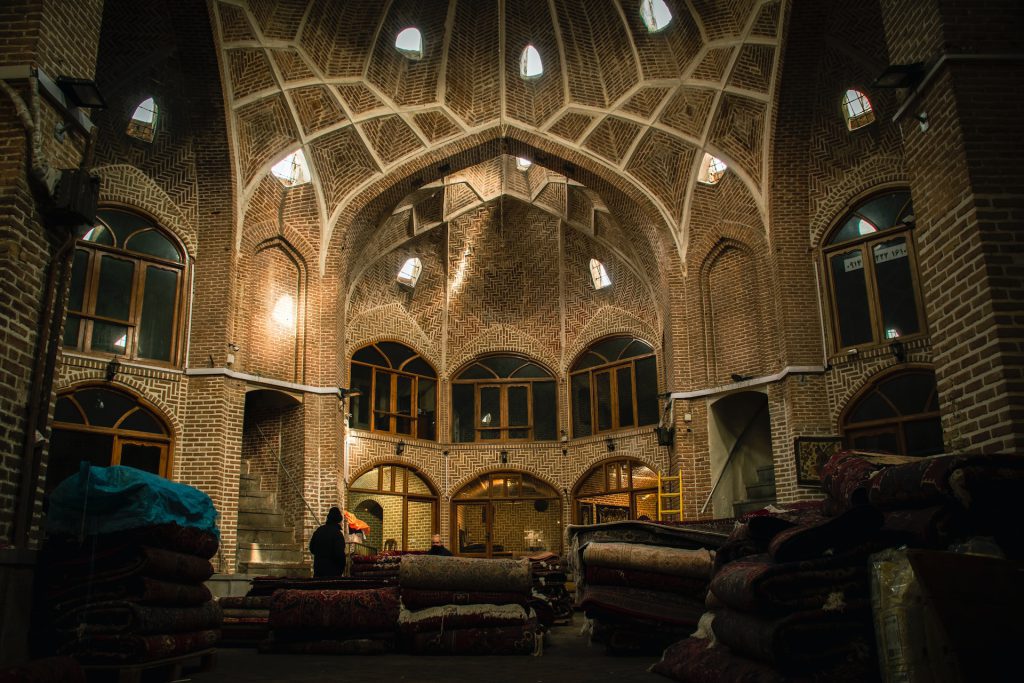
Not far from the bustling bazaar, the Tabriz Citadel, also known as Arg-e Tabriz, stands as a formidable testament to the city’s medieval grandeur. With its imposing walls and intricate design, it offers panoramic vistas of the city’s vibrant landscape.
For lovers of art and history, here boasts a wealth of cultural institutions and museums. The Tabriz Museum of Natural History houses an astonishing collection of fossils and specimens, while the Qajar Museum provides a captivating glimpse into the opulent lifestyle and artistic achievements of the Qajar dynasty.
How to get to Tabriz
The city’s accessibility is a boon for travelers. Depending on your location and preferences, you can choose from several convenient transportation options:
By Air
If you’re arriving from abroad or distant Iranian cities, Tabriz International Airport serves as your gateway. It welcomes numerous international and domestic flights daily, ensuring a seamless start to your journey.
By Train
Consider a scenic train journey to the city, as Iran’s extensive railway network connects it to major cities like Tehran and Mashhad.
By Bus
Travelers on a budget will appreciate the affordability of long-distance buses connecting various Iranian cities to here.
Must-see Tabriz Attractions
Tabriz, located in northwestern Iran and serving as the capital of East Azerbaijan Province, offers an abundant array of attractions guaranteed to captivate your senses:
Grand Bazaar of Tabriz
Renowned as the largest covered bazaar in Iran and the world, Tabriz bazaar covers approximately one square kilometer. Registered as a UNESCO World Heritage site in 2009, it owes its historic prosperity to Tabriz’s strategic location along the Silk Road.
El Goli Building
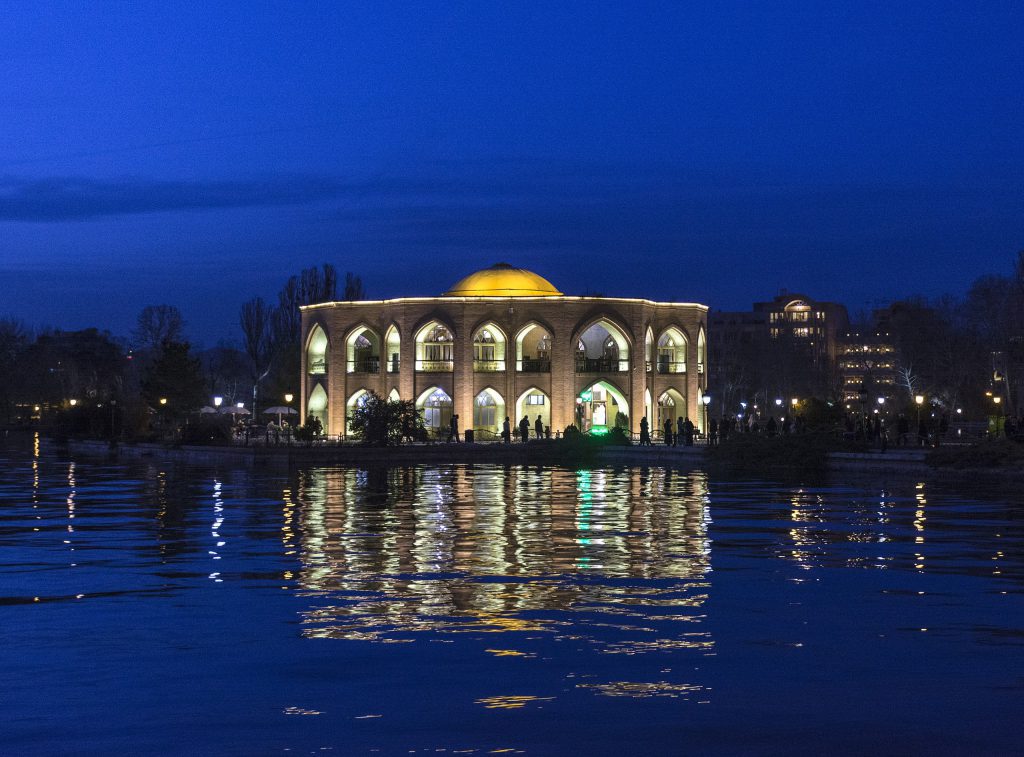
Nestled in the city’s southeast, the El Goli mansion is a prominent tourist destination. Floating serenely amidst a lake, this two-story architectural gem offers visitors a delightful blend of recreation, culture, and scenic beauty.
Address: El Goli Boulevard, El Goli Park
Azerbaijan Iran Museum
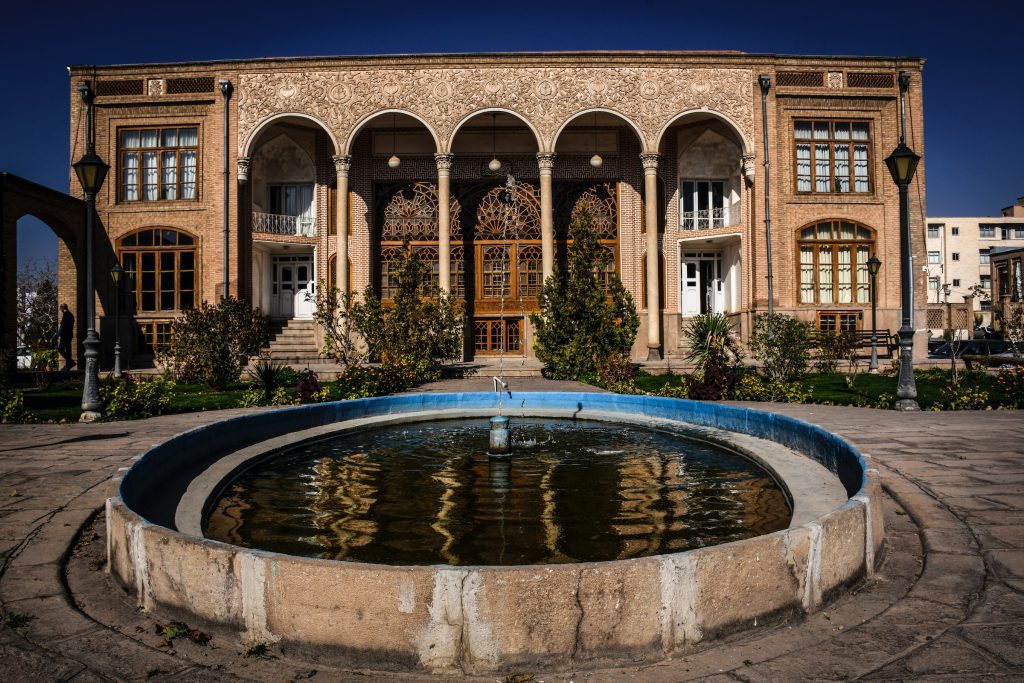
Located in Tabriz’s city center, this museum ranks among Iran’s most significant cultural institutions. Its 2,400 square meters encompass three floors, each housing a diverse array of exhibits. The museum’s architectural design draws inspiration from the local styles of Azerbaijan.
Address: Imam St., next to the Blue Mosque
Municipality Palace of Tabriz
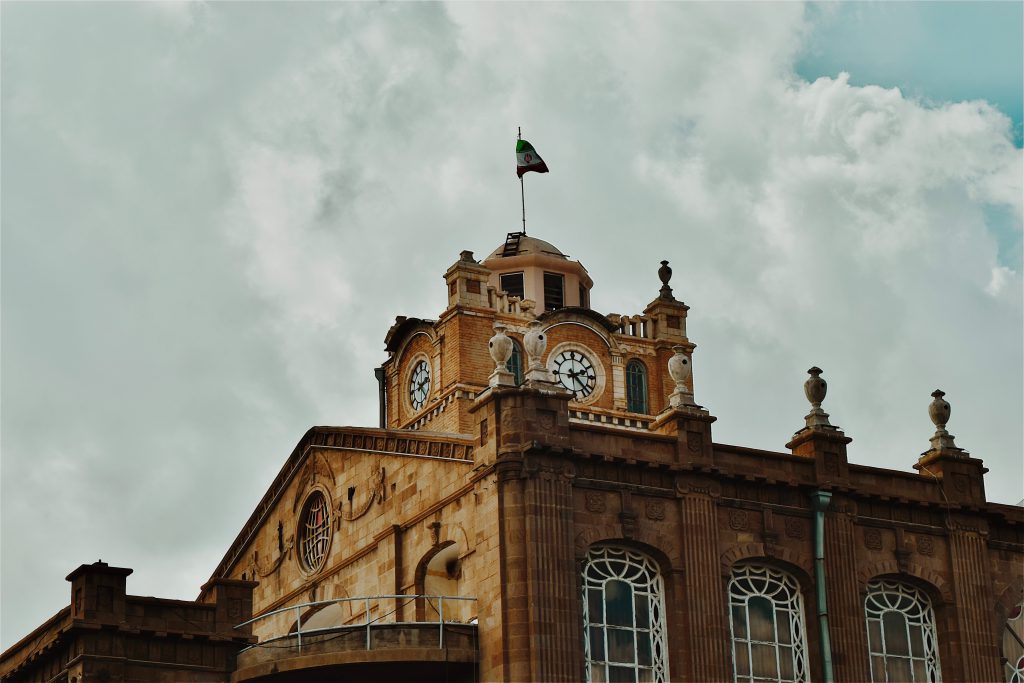
Situated in the heart of the city at Tabriz Municipality Square, this historical edifice is a cherished cultural monument. It houses a variety of halls, including the Carpet Hall displaying a unique collection of 110-year-old carpets and rugs.
Address: Central Tabriz, Municipality Square
Arg-e Alishah
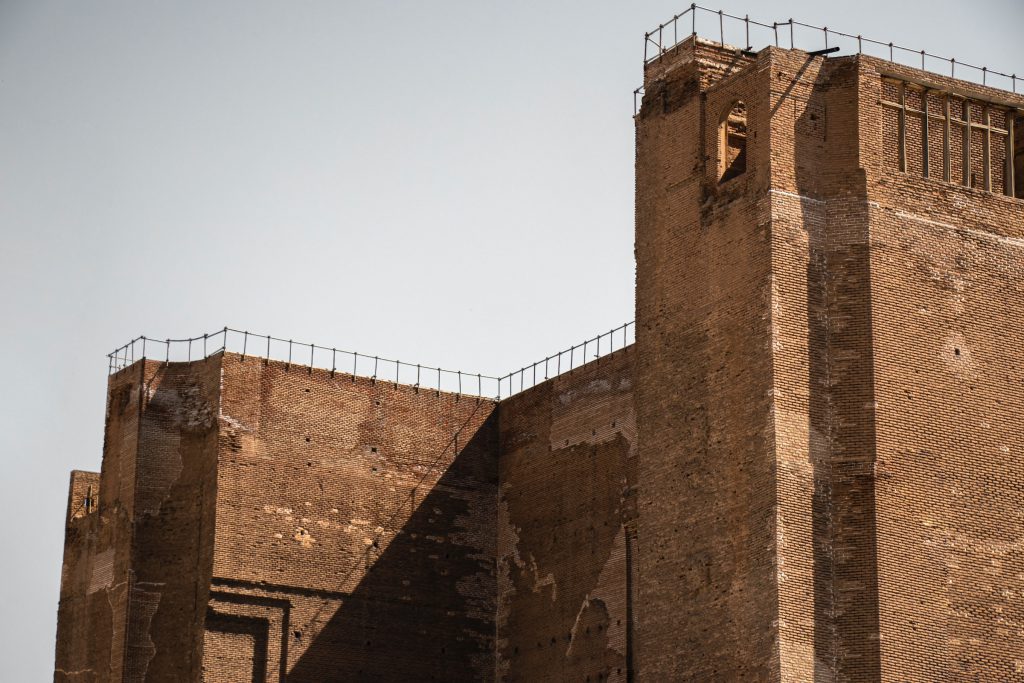
The Tabriz Citadel, also known as Alishah Citadel, boasts a rich history dating back 700 years. Although much of its original grandeur has faded due to time, earthquakes, and wars, this towering wall serves as a poignant reminder of its former glory.
Address: Central Tabriz, Imam Khomeini and Ferdowsi Streets, near Saat Square
Blue Mosque, Tabriz
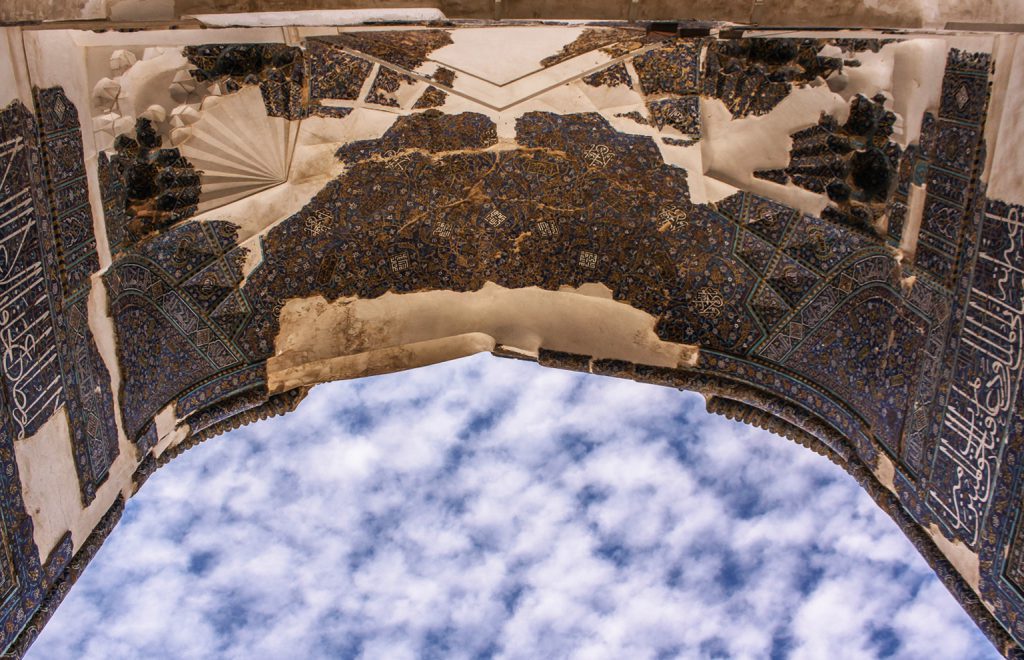
Revered as one of the prime examples of Islamic architecture in East Azerbaijan province, the Blue Mosque’s unique charm and historical significance make it a prominent attraction. Dating back to the 9th century AH, it is the only remaining architectural relic from the Qaraqoyunlu dynasty’s rule in Tabriz.
Address: Imam Khomeini Street, neighboring to Khaghani Park
Jameh Mosque of Tabriz
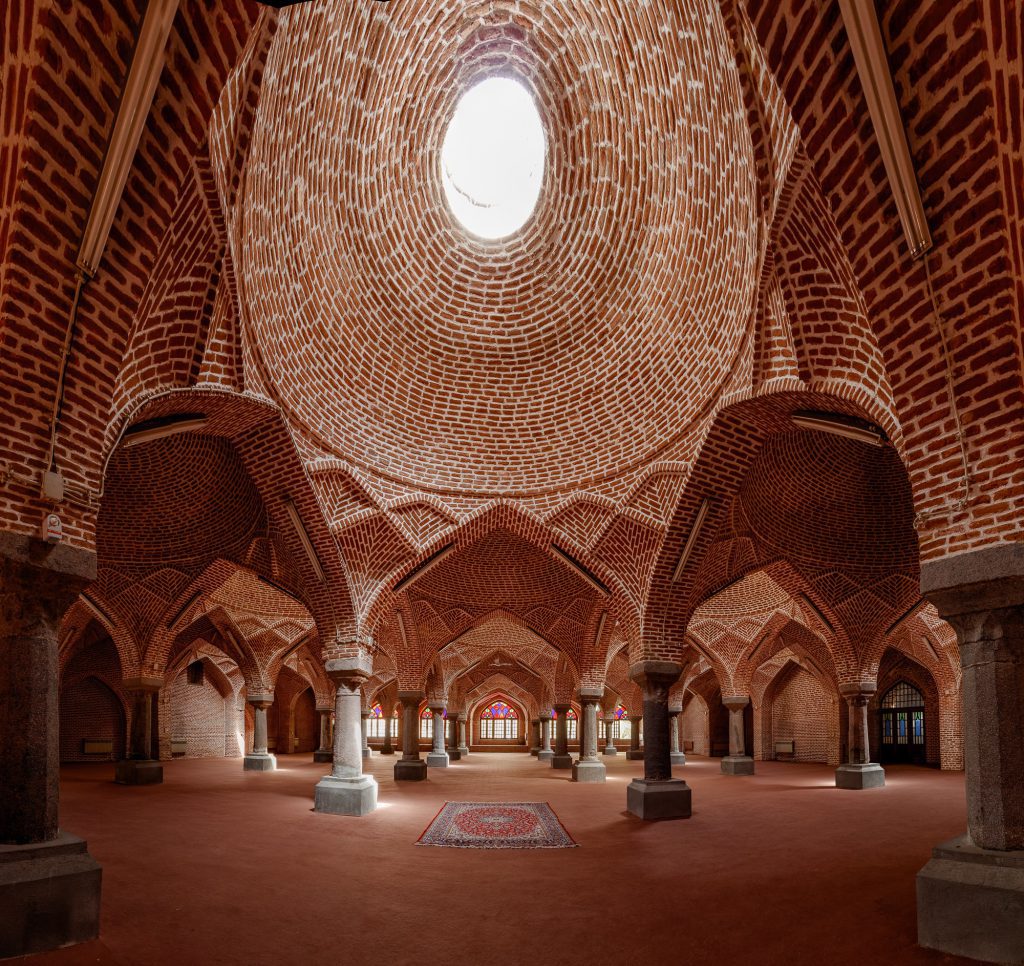
Situated at the end of Tabriz Bazaar on Shahid Motahari St., this grand mosque showcases architectural elements from the Seljuk and Ilkhanid periods. Its splendid altar, marked by intricate colored plasterwork, provides a window into Tabriz’s historical and religious heritage.
Qajar Museum – House of AmirNezam Garrousi
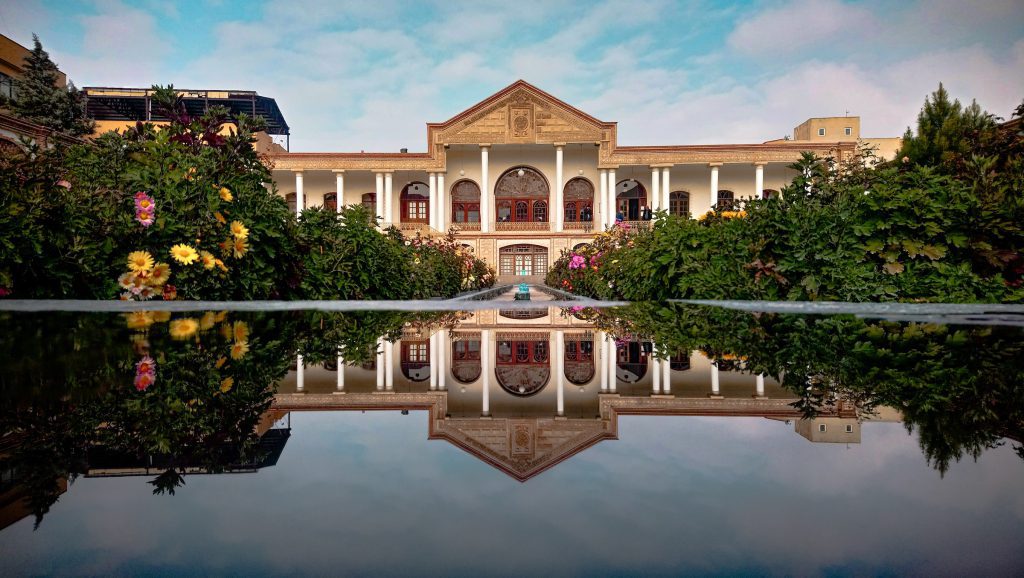
A testament to the Qajar era’s opulence, this beautifully preserved house was constructed during Naser al-Din Shah’s reign. It now serves as a museum housing a variety of exhibits, including a unique collection of Iranian fresco paintings.
Address: Sheshgolan neighborhood, near the children’s hospital, behind Sheikh Attar school
Parvin Etesami’s house
Rakhshandeh Etesami, renowned as Parvin Etesami, stands as Iran’s most celebrated female poet, born in 1907 in Tabriz. Today, her birthplace has evolved into a prominent tourist attraction in Tabriz. This historic house, dating back to the early Pahlavi era, served as Parvin Etesami’s childhood home until the age of seven. As you step inside, you’ll be captivated by the enchanting garden and the central pond gracing the residence.
Parvin Etesami’s greatness lies not only in her literary talent but also in her enduring impact on Iranian culture and her role in breaking gender barriers in the world of poetry. Her legacy continues to inspire and resonate with people in Iran and beyond, making her an enduring symbol of literary excellence and female empowerment.
Visiting hours for this captivating complex begin at 9 AM and extend until 2 PM, allowing you to explore the legacy of this distinguished poet and immerse yourself in the ambiance of her early years.
Address: Abbasi St., next to Mir Agha Mosque, No. 6
Maqbar Al-Shoara (the Tombs of Poets)
For the past 800 years, the Tomb of Poets has served as the final resting place for over 400 renowned poets, writers, mystics, and notable figures spanning various eras. This hallowed site stands as a testament to the collective legacy of these esteemed individuals. Among those interred here are luminaries such as Asadi Toosi, Khaqani, and Shahryar. Designated a national heritage site in 2007, the Tomb of Poets welcomes visitors from 8:30 AM to 6:00 PM, providing a window into the rich cultural tapestry that these literary giants have woven.
Constitution House of Tabriz
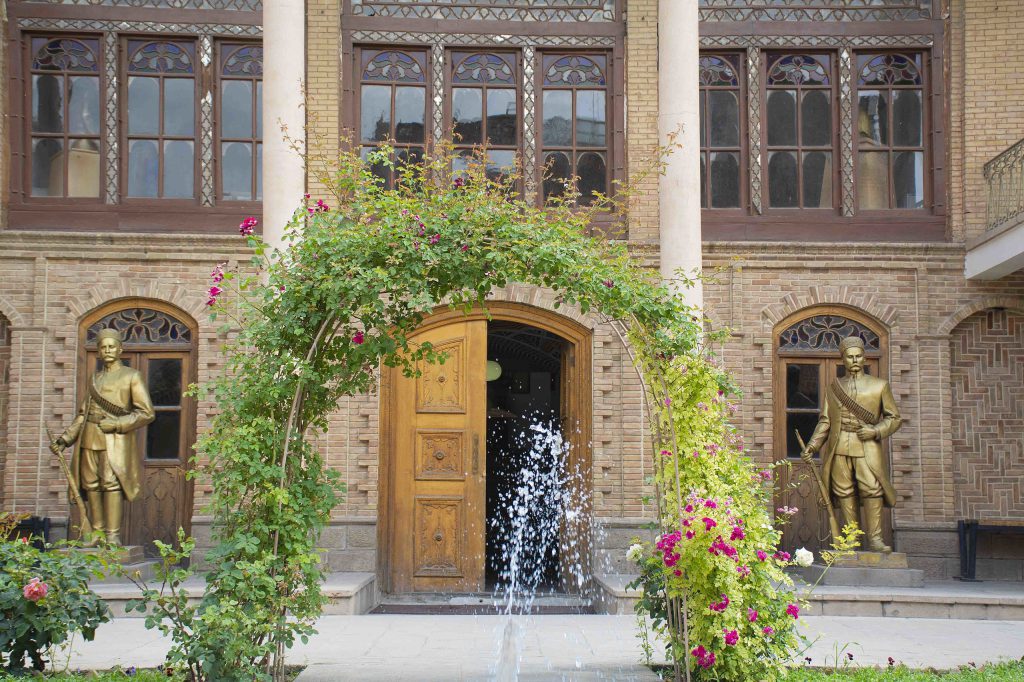
A symbol of the Constitutional Revolution, this historic house played host to key figures of the revolution, including Sattar Khan and Baqer Khan. It has since been transformed into a museum dedicated to preserving this critical period in Iran’s history.
Address: West of the Tabriz market, opposite the Jame Mosque of Tabriz
Nikdel House
An architectural gem from the Qajar era, Nikdel House’s elegance is evident in its impressive 16-column porch and serene inner courtyards. It offers a glimpse into the opulent lifestyle of the period.
Address: Imam Khomeini St., Maghsoodieh Pedestrian, No. Haft
Heydarzadeh’s House
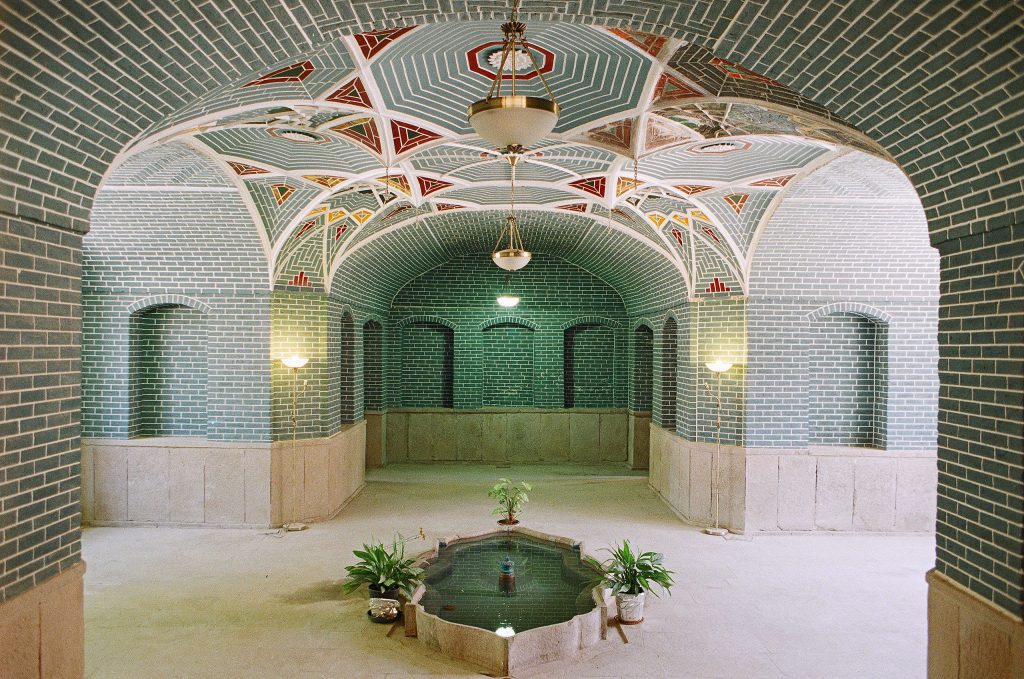
This historical house belonged to Heydarzadeh, a prominent Tabrizi merchant and a key figure during the Constitutional Revolution. Registered as a national monument, it provides insight into Tabriz’s historical and political significance.
Address: Behind the Tabriz municipality building, in Maghsoodieh Alley, in the city center
Behnam House
Dating back to the Zandiyeh and early Qajar periods, Behnam’s house is a testament to Persian architecture. Today, it houses the administrative department of Tabriz University of Islamic Arts and features Iranian fresco paintings from its recent renovation.
Address: Saat Square, Maqsoodiye neighborhood
Top 10 Traditional Tabriz Cuisine
Exploring Tabriz isn’t complete without indulging in its culinary delights. The city’s cuisine offers a tantalizing journey for your taste buds. Here are some must-try dishes:
Dizi (Abgoosht)
This hearty stew combines slow-cooked meat, legumes, and aromatic spices, often served in a unique two-step process involving mashing the ingredients into a flavorful paste.
Koofteh Tabrizi
Oversized meatballs, made from minced meat, rice, herbs, and spices, slow-cooked in a tomato-based sauce, resulting in a flavorful dish.
Tahchin
A beloved Persian dish that combines rice, yogurt, and saffron. What sets it apart is the golden, crispy crust that forms at the bottom of the pot during cooking. It can be filled with chicken or enjoyed as a vegetarian option.
Doogh
A traditional yogurt-based drink, tangy and refreshing, the perfect accompaniment to Tabriz’s rich cuisine.
Gaz
A sweet nougat unique to this city made with rosewater, pistachios, and the sap of the Angebin plant. It’s a chewy, fragrant treat loved throughout Iran.
Khagine
Khagine is served as a delicious dessert at parties or gatherings. The main ingredients of Khagine are eggs and vegetables.
Tomato Ash (Soup)
One of the delicious soups of Azerbaijan, which is appetizing and has a nice color and glaze, is tomato soup. As it is clear from the name of the soup, tomatoes are mostly used to cook it, and the ingredients that are usually used in it include pinto beans, hot onions, bulgur, rice, parsley, and dill, which play a significant role in its delicious taste.
Yogurt Ash
Ash-e Mast (Yogurt Soup) is always a constant in Tabrizi’s colorful tables and has more fans. The ingredients used to cook yogurt soup are oil, chickpeas, beans, lentils, rice flour, fine wheat semolina, hot onion, carrot, fresh green pepper, vegetable soup, and of course, yogurt.
Tabrizi Dolma
Another traditional and delicious food of Azeris, which is usually cooked more in summer, is Dolme Barg, which is prepared using grape leaves (Barg-e Mo), rice, cobs, bulgur, and aromatic vegetables. Dolme, like meatballs, is one of the favorite and well-known dishes of the Middle East, but the ingredients and cooking methods are different.
Tabrizi Yatimcheh
The cooking method of this dish is very easy, it is prepared with simple ingredients such as eggplant, tomato, onion, paste, butter, saffron, pepper, and turmeric, which has a very delicious taste.
Top 5 Restaurants in Tabriz
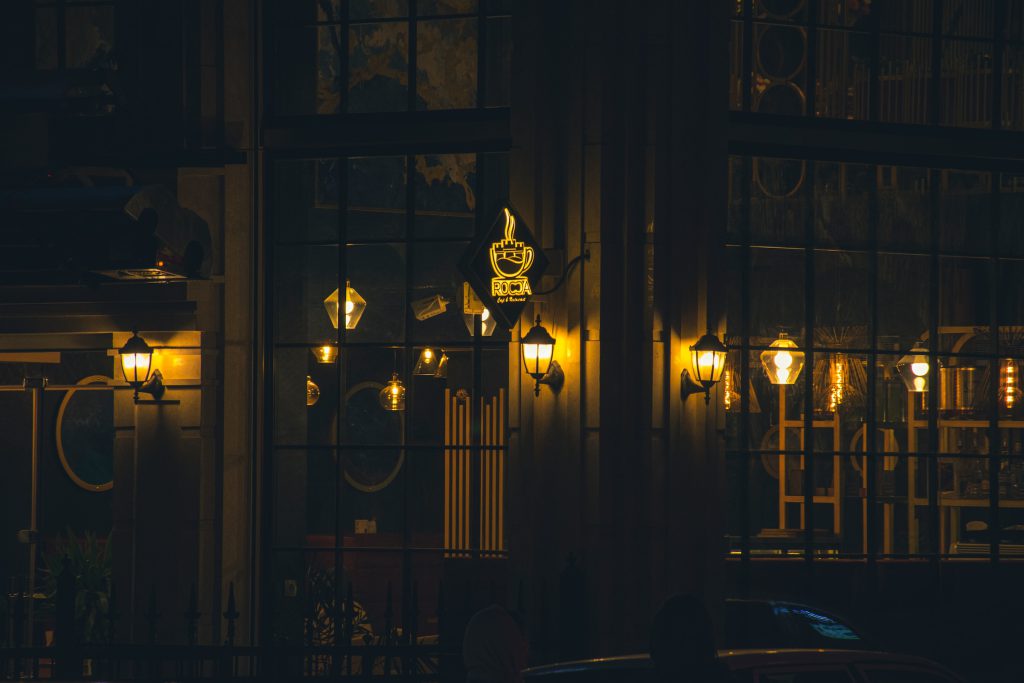
To savor these delectable dishes, consider dining at some of Tabriz’s finest restaurants:
- Good Fish Restaurant
- Imani Palace Restaurant
- Munch Restaurant
- Mozaffarieh Restaurant
- Eskeleh Restaurant
Top 6 Hotels in Tabriz
For a comfortable stay during your Tabriz visit, these hotels come highly recommended:
- Pars 5* Hotel of Tabriz Shah Goli
- Shahryar International 5* Hotel
- Laleh Park 5* Hotel
- Tabriz 4* Hotel
- Orosi Boutique Hotel
- Sorkheyi Boutique Hotel
Tabriz Souvenirs and Handicrafts
Keeping with tradition, bringing home a piece of Tabriz is a must. Check out these souvenir and handicraft options:
Tabriz Carpets
Renowned worldwide for their intricate patterns and craftsmanship, Tabriz Persian rugs and carpets are a testament to the city’s centuries-old tradition of carpet making.
Blue Pottery
Delicate blue pottery featuring intricate floral patterns and designs makes for charming home decor or unique gifts.
Miniature Paintings
The city is a hub for miniature painters who create exquisite artwork depicting Persian stories and legends.
Copper Utensils
From teapots to trays, Tabriz’s copperware combines functionality with beauty, allowing you to bring a piece of the city’s culinary culture home.
Tabrizi Saffron
Known for producing some of the world’s finest saffron, this city offers this aromatic spice, a must-buy for food enthusiasts.
Best Attractions Near Tabriz
While exploring Tabriz, consider visiting these nearby attractions:
Kandovan Village
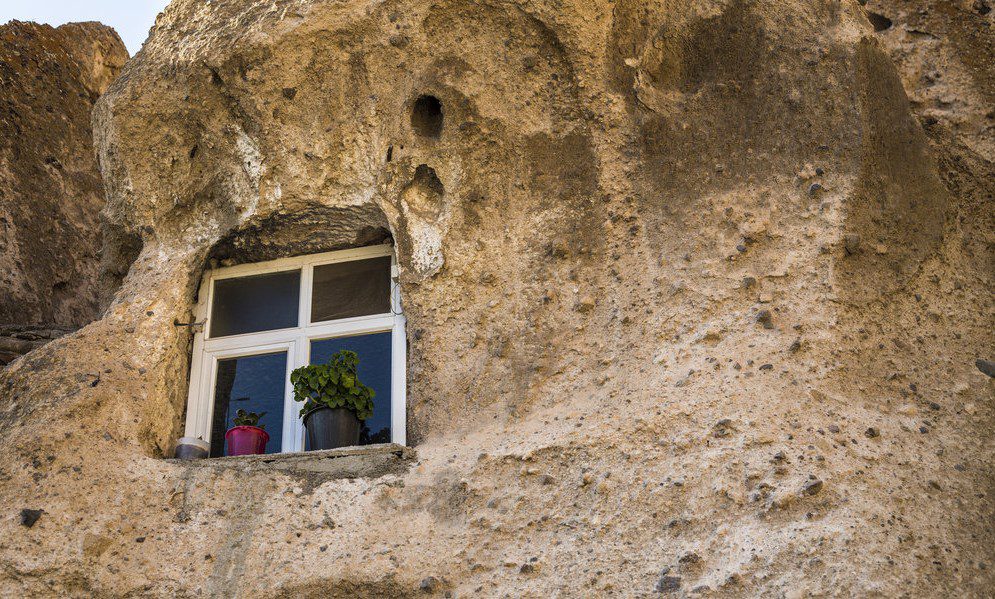
Located 65 km from Tabriz, this village features houses carved into the heart of the mountain like a beehive. The native rock architecture and unique texture have earned it a place on Iran’s list of national monuments. You can discover this wonderland with our 1-Day Tour of Kandovan.
Eynali Mount
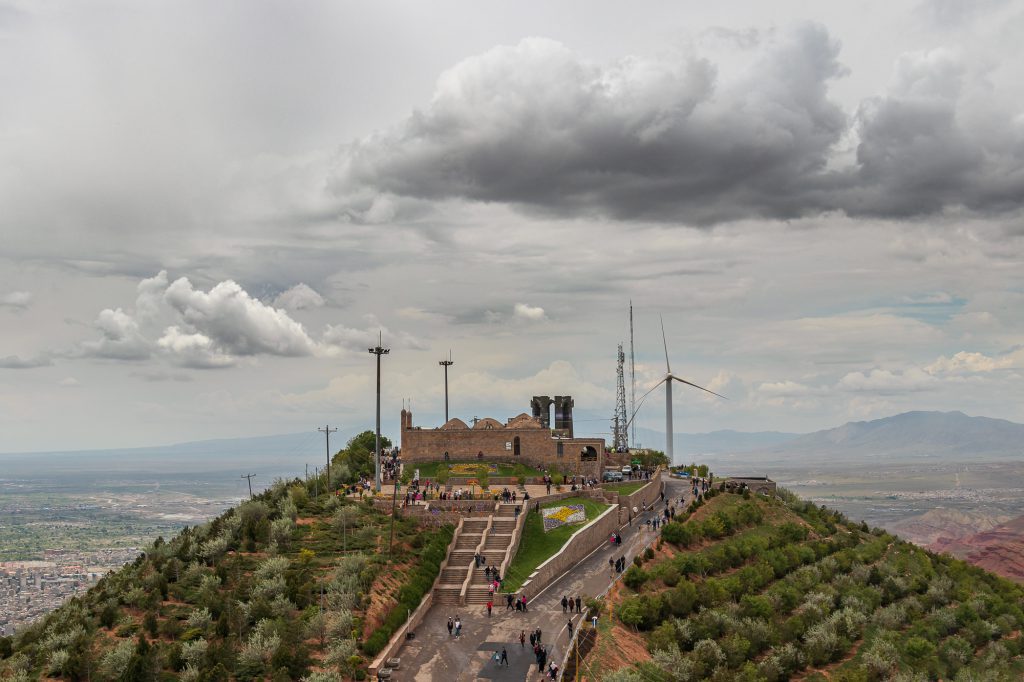
Situated in the northern area of the city, Eynali Mountain offers a range of red hills, with a tomb atop Aoun bin Ali Mountain dating back to the Ilkhani period. It provides excellent opportunities for exploration, especially from May to October.
Jolfa and Aras Riverside
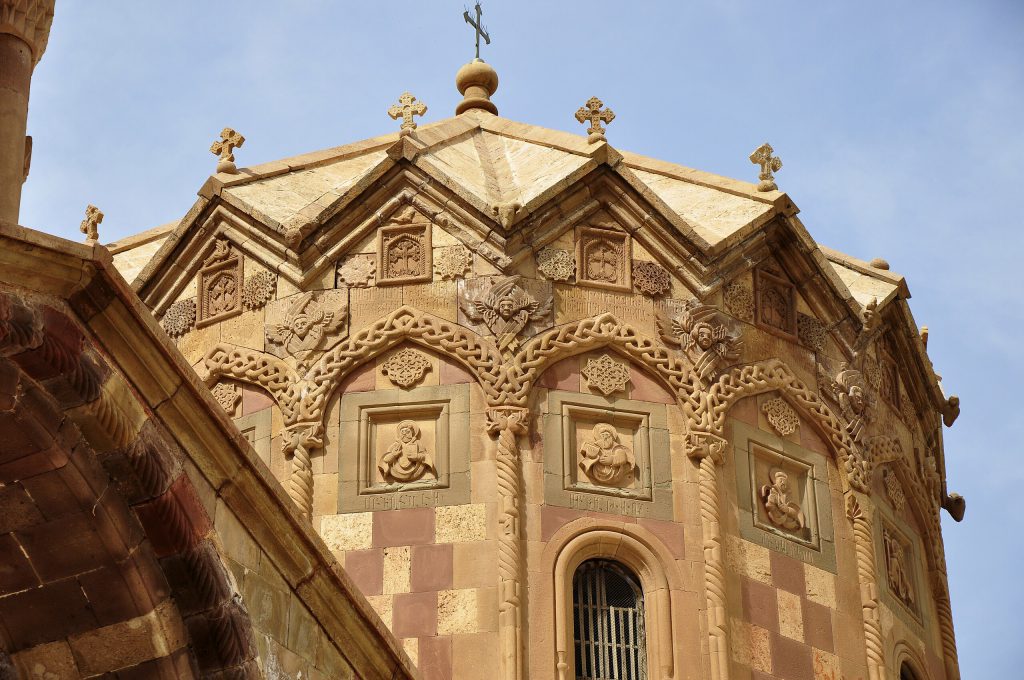
Jolfa, located 130 km from the Tabriz, boasts a pleasant climate, proximity to the Aras River, and numerous churches and historical sites, including the Chapel Of Chupan and Monastery of Saint Stepanos.
FAQs about Tabriz City
Q1: What’s Tabriz Iran famous for?
A1: Tabriz city is famous for its rich history, vibrant culture, and exquisite Tabriz rugs and carpets. It’s also known for being one of Iran’s major historical cities.
Q2: Is Tabriz in Iran or Azerbaijan?
A2: Tabriz is located in Iran, specifically in the East Azerbaijan province.
Q3: Are Tabriz carpets expensive?
A3: Tabriz carpets come in a range of prices, from affordable to high-end. The cost depends on various factors, such as the size of the carpet, the quality of materials used, and the intricacy of the design. High-quality Tabriz carpets can be relatively expensive due to the craftsmanship involved.
Q4: Is Tabriz a good city?
A4: Tabriz is often considered a good city to visit, offering a mix of historical sites, cultural attractions, and a hospitable atmosphere. However, opinions on cities can vary depending on personal preferences.
Q5: Why do Iranians speak Turkish?
A5: Iranians speak Turkish primarily in regions with a significant Azerbaijani Turkish-speaking population, like Tabriz. This linguistic diversity is a result of historical and cultural factors, as well as the geographic proximity of Iran to Turkic-speaking regions.
Q6: Do they speak Turkish in Tabriz?
A6: Yes, a significant portion of the population speaks Azerbaijani Turkish, which is a Turkic language. Persian is also widely spoken.
Q7: Is Baku Persian?
A7: No, Baku is not Persian. Baku is the capital city of Azerbaijan, and the primary language spoken there is Azerbaijani, a Turkic language.
Q8: Why should I visit Tabriz?
A8: Tabriz offers a unique blend of historical, cultural, and architectural attractions. Visitors can explore its historic bazaars, mosques, and the Tabriz Historic Bazaar Complex, a UNESCO World Heritage site. The city also provides a gateway to the beautiful landscapes of northwestern Iran.
Q9: How to identify Tabriz rugs?
A9: Tabriz rugs stand out for their trimmed piles, giving them a lighter texture, and their meticulous weave is achieved with a small metal hook for knotting. These rugs boast an impressive array of colors, often featuring vibrant and cool shades. Interestingly, Tabriz Persian rugs are woven using Turkish knots instead of the more typical Persian knots, further adding to their unique character.
Exploring Tabriz City with To Iran Tour
Ready to explore the rich tapestry of Tabriz’s history, culture, and cuisine? Look no further than To Iran Tour’s tailor-made tours. Whether you’re a history enthusiast, a culinary adventurer, or simply seeking to immerse yourself in the vibrant atmosphere of Tabriz, our expertly crafted itineraries are designed to ensure an unforgettable experience. Don’t miss the opportunity to discover the wonders of Tabriz with To Iran Tour. Book your journey today and embark on an adventure that will leave you with memories to cherish for a lifetime.

